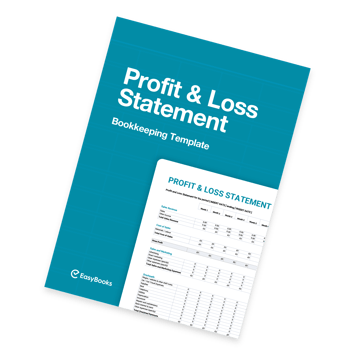Although in some cases you can use your personal bank account for business expenses, it’s not the best idea. This makes keeping your records straight really complicated, makes tax preparation much more difficult and you’ll spend too much time shuffling through transactions. Here’s more information to help you decide if it’s the right choice for you.
You should understand that HMRC requires all business owners to separate business and personal transactions, but there’s no requirement for separate bank accounts. That’s unless you’re a limited company, then you’ll certainly need one.
Having One Account Makes It Convenient...For a While
Running your own business means dealing with day-to-day tasks, managing your finances, paperwork and so on. The last thing you want to deal with is a separate account in addition to operating your personal one.
As a self-employed person, you can use your personal account for business expenses. By doing this, it means you only have to deal with one account rather than juggling multiple accounts and records.
Although, during tax returns, the process can be a little more long-winded.
Combined Funds = You’ll Waste Valuable Time
Using a personal account for business expenses will result in a lot of time wasted because your business-based finances will be mixed in with your personal funds.
The last thing anybody wants to do is to sit down and search through their accounts to find an important business transaction. That’s why it makes more sense to open a business account to keep things hassle-free.
You’ll save a lot more time and focus your attention on other areas of your business.
Tax Becomes Far More Complicated
Separate business accounts from personal accounts. If you don’t do that, it’ll make preparing taxes much more difficult and could cause financial issues associated with your business. Again, it’s because you’ll face the strenuous task of searching and categorising each transaction.
As your business will be wrapped up in your own finances , there’s always a chance that HMRC will take issue with the way you have dealt with individual items..
It Can Show a Lack of Professionalism
You want your business to grow, but using a personal account for business expenses might hinder that progress rather than giving it a much-needed boost. While using your personal account for basic business transactions might be quick and easy, it does signal a lack of professionalism.
Let’s say you’re offering a service and it’s time to make a payment. Customers are always more comfortable sending money to an account with your business’ name on it, rather than handing over their well-earned money to a personal account.
If customers aren’t comfortable doing this, then you might not get as much business as you want.
You’ll Invite the Taxman to Look at Your Accounts
Consistently blurring the lines between personal and business expenses can cause significant issues. Using a personal account can potentially give the taxman an invitation to investigate and start looking at your personal accounts. Essentially, you’d be inviting more scrutiny to your personal funds.
In the event of an enquiry, you’d be allowing HMRC the opportunity to poke their nose in and seek to disallow costs that might be genuine business expenses. To avoid these potential pitfalls and keep both separate, it’s a better idea to not use a personal account for business purposes - just to be on the safe side.
Claiming Expenses Can be a Tricky Process
Using your own account for business expenses can blur the lines between your personal and business life. Financial matters can end up becoming confusing, especially when it comes to business expenses.
If you purchase new company equipment, for example, does that mean you can claim that money back as a business expense? Especially if you haven’t used a business account? While you can still claim the costs, it can be a much more long-winded process.
Every time you make a business purchase, you must enter it into your accounts as a business expense You must also note that you paid for it out of personal funds. If you forget to do this, then no tax relief will be available.
Every purchase must meet HMRC’s ‘wholly and exclusively’ rule, and can’t be used in a personal capacity. To avoid any potential issues here, it makes more sense to use a business account for business expenses.
Logging and claiming expenses can be a time-consuming task anyway. A good way to make this process easier is to use an app in which you can categorise receipts into, or use an expense template to file expenses as you go along.
Along with expenses, you need to think about things like profit and loss, a petty cash log, customer invoices and so much more. That’s why we’ve created a handy template pack that’s designed to make your life easier.
Make Bookkeeping Easier With Your Very Own Templates
If you want a more natural way to keep track of your bookkeeping and waste less time searching through multiple accounts, then make sure you download our free templates.
It’s just one of the many we’ve put together in a useful pack. They’ll help you better manage and grow your business. To get your free copy, click on the link below.








